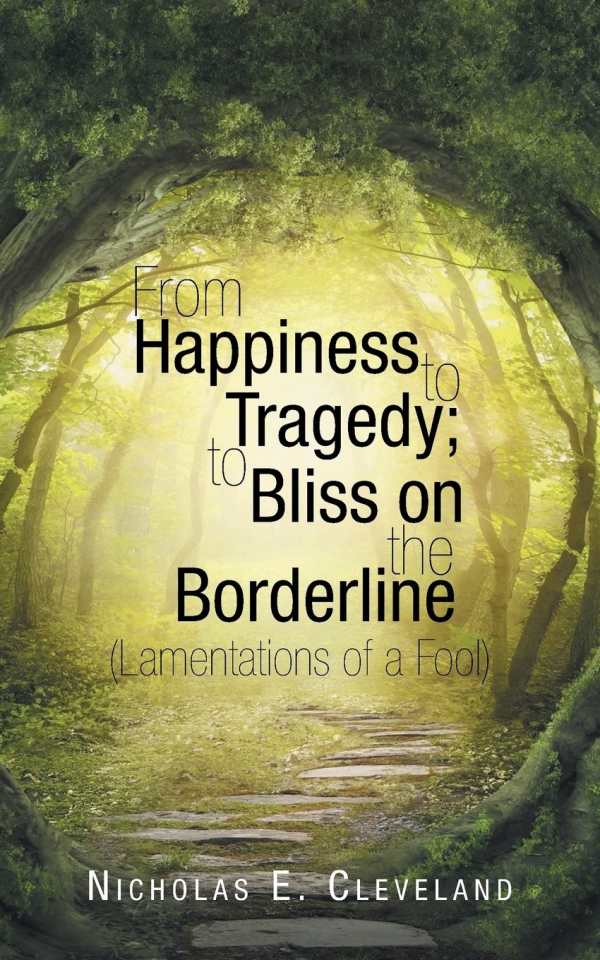From Happiness to Tragedy; To Bliss on the Borderline
(Lamentations of a Fool)
Cleveland proves that those who currently feel alone in their personal struggles are actually in good company.
The troubled heart of Nicholas E. Cleveland’s From Happiness to Tragedy; to Bliss on the Borderline pulses with difficult relationships the author had with his late first wife and later his second wife. Understanding the motivations and actions of those women seems to be the initial goal of his writing. However, by the memoir’s conclusion, Cleveland has turned his inquiry inward to discover his role in allowing certain events to unfold, and how those events influenced not only his life, but also the life of his son.
The writing is clear, and the narrative is presented in an easily accessible, linear format. Those interested in reading about relationships from a spiritual standpoint will appreciate the work that Cleveland has done to present some universal questions and consider their answers from an intimate, personal perspective.
What he has essentially done is focus the lens on life’s bigger questions, like: why do bad things happen to good people while bad people often seem triumphant? He then attempts to answers those questions by zooming in on his own experience. And he succeeds in doing so by honestly delving into his experiences and offering thoughtful reflections as to what those experiences meant to him, specifically as possible answers to the aforementioned “big” questions. While the answers are, of course, uniquely his, the journey to discover them is one that is familiar.
As a narrator, Cleveland is forthcoming and unapologetic. His trustworthy voice rings out authentically, often with pain and frustration. His desire to understand the motivations driving himself and those around him is palpable, a very human yearning and endeavor. This narrative is a saga that explores the realms of loss in myriad ways.
Cleanly organized in five distinct parts, the dedication strikes at the purpose of this narrative and its intended audience: “To those who have experienced bliss only to have it turn into pain and misery.” The author makes a connection based on that statement alone. For those traveling with him on this journey, particularly those who struggle to understand or triumph over the pain and misery in their own lives, From Happiness to Tragedy; to Bliss on the Borderline, can provide comfort as a point of connection and recognition. As Cleveland suggests, feelings of isolation and confusion make tragedy all the more trying.
Cleveland proves that those who currently feel alone in their personal struggles are actually in good company. Lacking answers, they can find community in the questions.
Reviewed by
Amanda Silva
Disclosure: This article is not an endorsement, but a review. The publisher of this book provided free copies of the book and paid a small fee to have their book reviewed by a professional reviewer. Foreword Reviews and Clarion Reviews make no guarantee that the publisher will receive a positive review. Foreword Magazine, Inc. is disclosing this in accordance with the Federal Trade Commission’s 16 CFR, Part 255.

